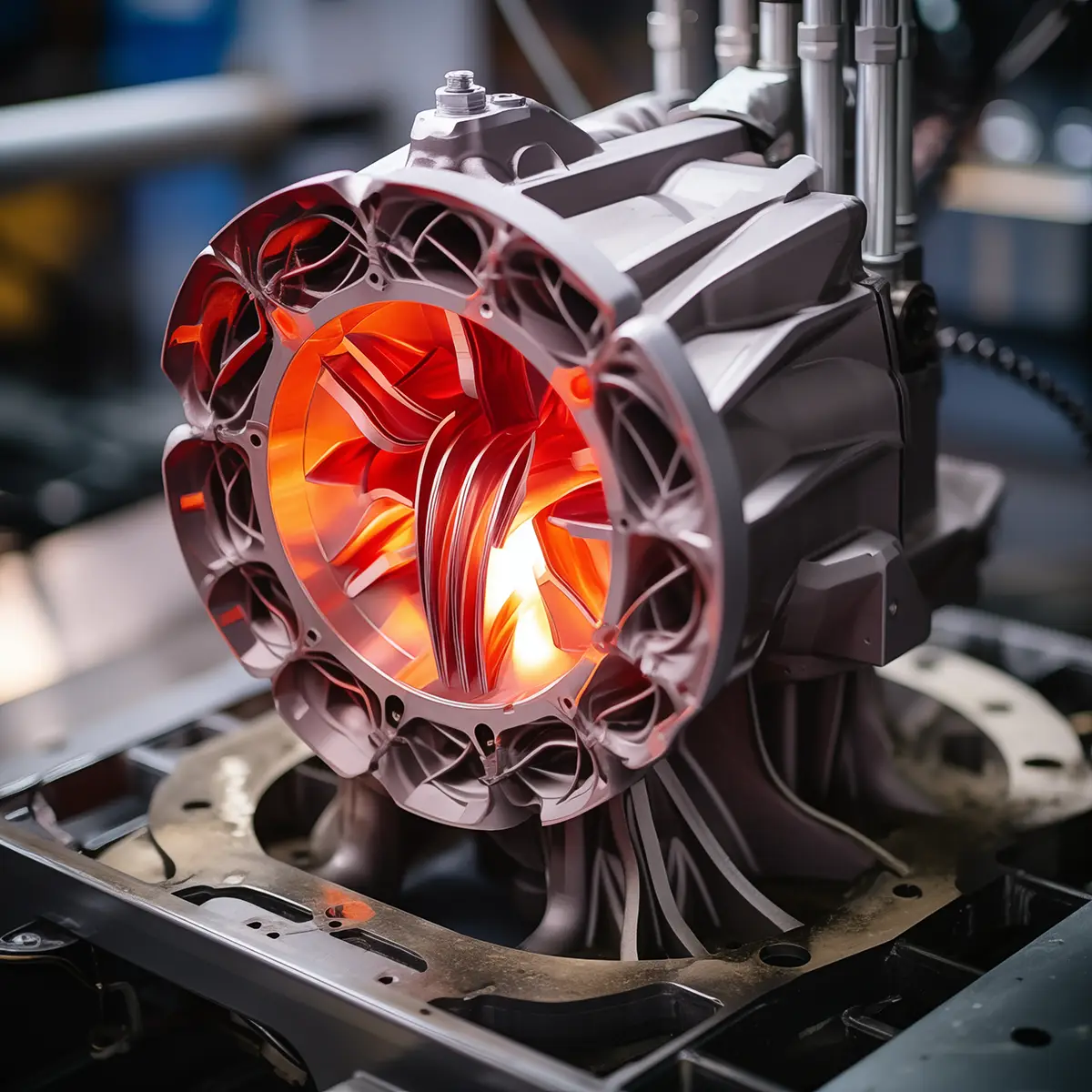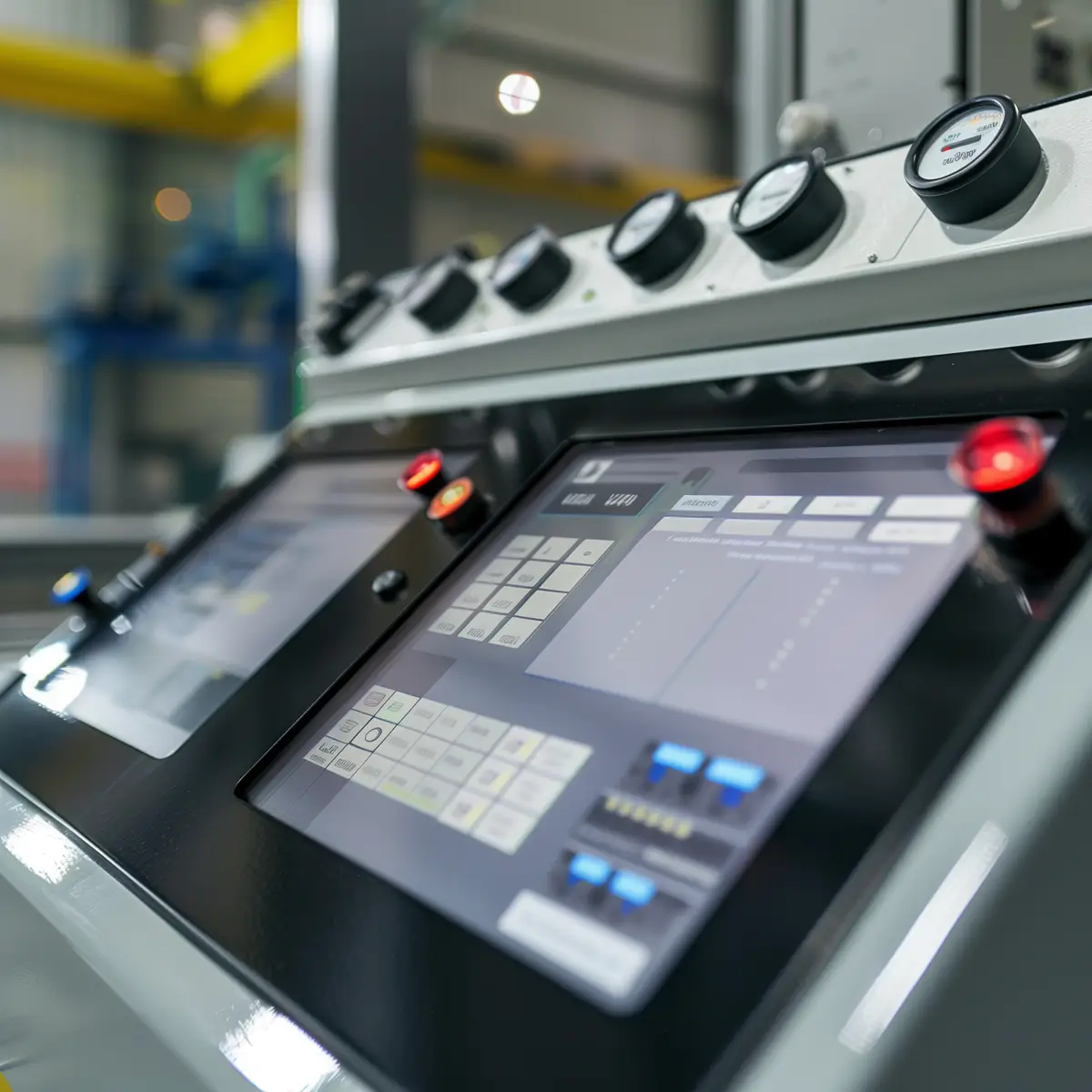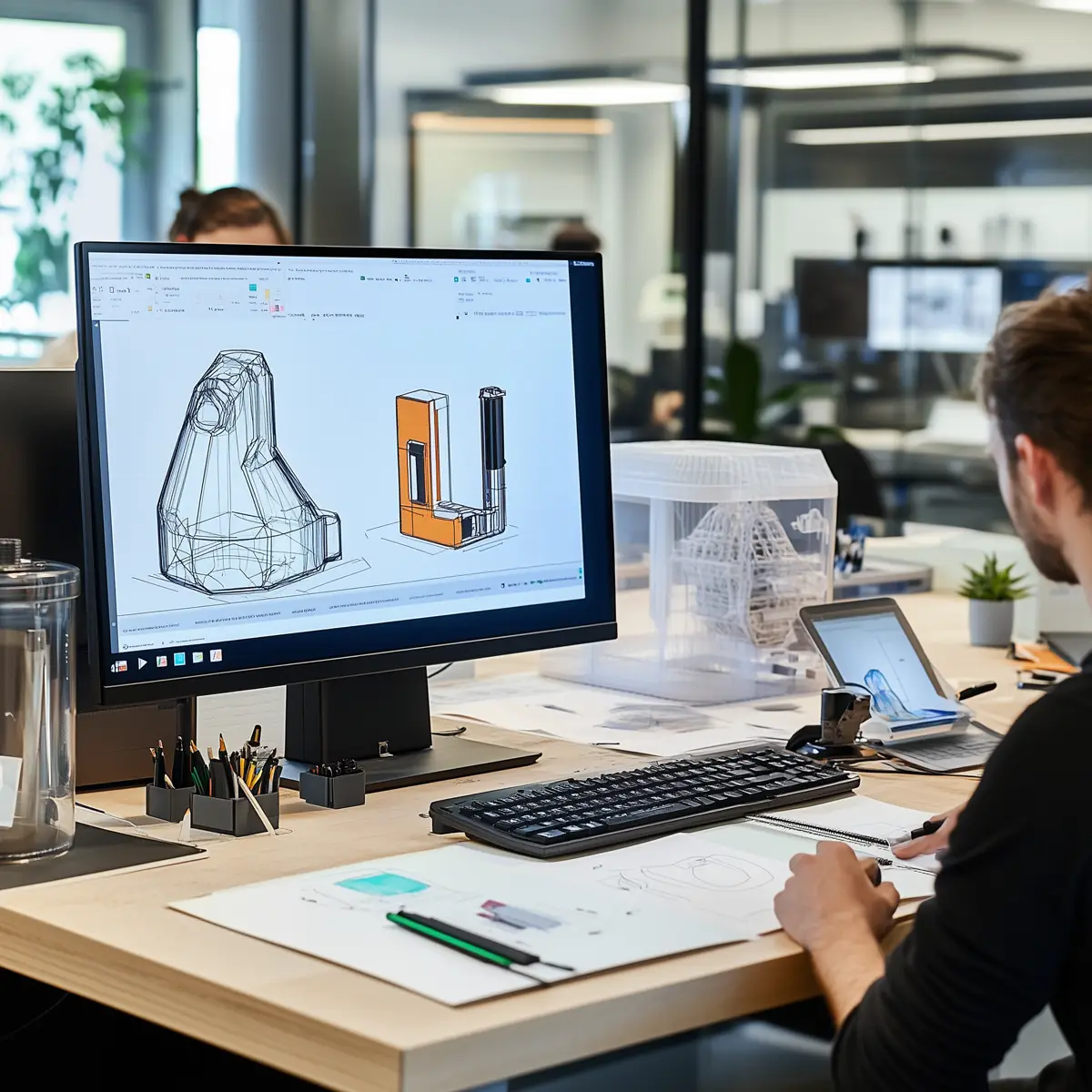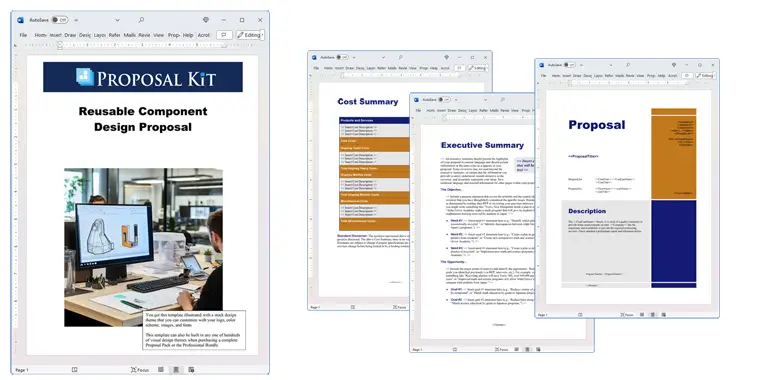How to write your Reusable Component Design Proposal
We include this 17 page layout with every Proposal Pack. If you want this template to have a different visual design theme than the one illustrated here, purchase any Proposal Pack design and create this template using the purchased design theme. This template is included in every Proposal Pack. If you get a Proposal Pack or the Professional, you can also make any variation of this template with different chapters to suit your needs.
We typically include more chapters in the templates than most people will need to give everyone more variety in the chapters they may need. You can trim down a long template by removing pages you do not need or combining multiple chapter topics into one page.
 DOWNLOADABLE, ONE-TIME COST, NO SUBSCRIPTION FEES
DOWNLOADABLE, ONE-TIME COST, NO SUBSCRIPTION FEESYou can also create countless variations of this document to suit your needs using the included library of 2200+ chapters if ordering a Proposal Pack or Professional.
 What Our Clients Say
What Our Clients SayI have been using this product since 2006. I must admit I would be lost without it. In writing contracts and proposals or responding to an RFP, I would start and get stuck not knowing where to go next. Proposal Pack to the rescue. Always helps me put together a finished package neatly."
Related Article
Related Video
Related Templates
- 3D Printing and Prototyping Services Proposal
- Outsource Supply Production Locally Proposal
- Industrial Controls System Design and Implementation Proposal
- Prototyping, Fabrication and Machining Services Proposal
- Robot Design Project Proposal
- Industrial Design Project Proposal
- Prototyping and Product Design Proposal
- Manufacturing and Distribution Proposal
- Welding and Fabrication Services Proposal
- Machining Services Proposal
- Product Manufacturer Proposal
- AI Powered Domestic Manufacturing Proposal Template
- Quality Assurance Project Proposal
- Collaborative Robotics Manufacturing Proposal Template
- Manufacturing Process Improvement Proposal
- Advanced Manufacturing Proposal Template
- Intelligent Factory Reshoring RFP Template
- Prototyping Fabrication and Machining Services Proposal
- Product Manufacturing Project Proposal
- Modeling and Simulation Proposal Template
- Process Improvement Proposal
- Manufacturing Proposal Template
- Advanced Robotics Integration Proposal Template
What's the best way to write your reusable component design proposal?
Writing a proposal to design reusable components can be a challenging task, especially under tight deadlines. However, using the Proposal Kit template and software package offers a proven solution that simplifies the process. The Proposal Kit system comes with a comprehensive database for line-item quoting, allowing you to effortlessly summarize costs, provide quotes, and manage budgets and other financial details. If you find yourself needing to create such a proposal quickly, or if you're seeking to avoid high subscription fees, the Proposal Kit is designed for you.
What Types of Projects Are Reusable Component Design Proposals Written For?
Reusable design proposals are created for a variety of projects aimed at cost-saving and enhancing efficiency. Below are examples of the diverse projects where such proposals are applicable
- Automotive part redesign for sustainability
- Modular furniture manufacturing
- Eco-friendly packaging solutions
- Smart home device components
- Aerospace part reengineering
- Reusable medical equipment development
- Sustainable construction materials
- Renewable energy components
- Wearable technology parts
- Consumer electronics redesign
- Industrial machinery upgrades
- Agricultural equipment innovation
- Textile recycling initiatives
- Advanced robotics components
- Marine equipment reusability
- Smart city infrastructure
- Electric vehicle components
- Green building materials
- Efficient water management systems
- Cost-effective household appliances
Chapters this template is built with
Creating a proposal for reusable component design usually requires customized solution. There is no one-size-fits-all premade template that will cover every situation. The Proposal Kit software allows for the customization of templates to suit specific project needs. Here is a selection of chapter templates available in the Proposal Kit's extensive content library used in this kind of proposal:
Cover Letter
A compelling cover letter sets the stage for your proposal. Use this section to personally address the recipient, introduce the proposal, and express your enthusiasm for the project. In a reusable design proposal, the cover letter can underscore your commitment to sustainable practices and innovation, making a strong first impression.
Executive Summary
This chapter offers a snapshot of your proposal, presenting the key points and intended outcomes of your reusable component design project. You should summarize the project's objectives, the anticipated benefits of reusability, and the importance of the initiative to stakeholders.
Cost Summary
Here, outline the financial topics, including estimated costs, potential savings, and budget considerations using the integrated quoting system. For a reusable design proposal, this section should clearly demonstrate how the reuse of components can lead to significant cost reductions over time.
Getting Started
Detail the initial steps and requirements to kickstart the project, ensuring all stakeholders are aligned on the roadmap. In a reusable components project, this could include an overview of necessary resources, initial design meetings, and stakeholder buy-in strategies.
Advantages
Highlight the benefits of implementing reusable components, from cost savings to sustainability and efficiency improvements. This section should emphasize how reusability aligns with broader corporate goals, such as reducing environmental impact or increasing market competitiveness.
Prototyping
Discuss the process of creating prototype components, including materials, timelines, and testing procedures. In this chapter, explain how prototypes will be evaluated for reusability, performance, and compliance with industry standards.
Product Development
Explain how the project will progress from prototype to final product, covering design refinements and quality checks. In a reusable component proposal, this section should stress the iterative nature of development, incorporating feedback loops to enhance reusability.
Reusability
Emphasize the importance of designing components that can be easily reused or repurposed, reducing waste and long-term costs. Detail specific design principles or strategies that will be employed to maximize component lifecycle and versatility.
Components
Provide a breakdown of the specific components involved in the project and their individual roles. Detail how each component is designed for reusability, focusing on interchangeability, durability, and compatibility with other systems.
Computer Aided Design
Describe the use of CAD tools in the design process, ensuring precision and adaptability for the components. Highlight how CAD technology facilitates the creation of detailed reusable component models that can be easily adjusted and optimized for different applications.
Manufacturing
Outline the manufacturing process, highlighting technologies and methods that promote efficiency and quality. In particular, discuss how manufacturing techniques will be adapted to support the production of reusable components, such as modular assembly lines or advanced recycling processes.
Cost/Benefit Analysis
Present a detailed analysis of the financial and operational benefits compared to the costs involved in the project. This chapter should include a comprehensive evaluation of how the initial investment in reusable design will pay off through reduced material usage and lower production costs.
Cost Savings
Focus on the projected cost savings over time, including reduced material costs and decreased production expenses. Provide specific examples or case studies that illustrate the successful implementation of reusable components, showcasing tangible savings achieved.
Capacity
Illustrate how the proposal will improve manufacturing capacity, leading to increased output and scalability. Discuss how reusability can streamline production processes, reduce downtime, and enable more agile responses to market demands.
Use cases for this template
Accelerating Sustainability Efforts in the Automotive Industry
The Challenge
At EcoAuto Innovations, Lisa was tasked with the project of redesigning automotive parts to meet new sustainability standards. The pressure was immense, as the automotive industry faced increasing regulatory demands and customer expectations for greener products. Lisa needed to prepare a comprehensive proposal to secure both the necessary funding and executive approval to proceed with the project in a very short time frame.
The Solution
Faced with this challenge, Lisa turned to Proposal Kit for assistance. The software's extensive library of templates offered a structured framework, which was instrumental in quickly writing a detailed proposal. Lisa was able to focus on the content, ensuring that the proposal was not only comprehensive but also aligned with the company's sustainability goals.
The Implementation
Lisa customized the templates to highlight the environmental advantages and the potential cost savings of the redesigned automotive parts. She used the line item quoting system provided by Proposal Kit to create precise budget forecasts, making it easier for stakeholders to understand the financial implications and benefits of the project.
The Outcome
The clarity and thoroughness of Lisa's proposal secured the necessary funding and executive approval. As a result, EcoAuto Innovations was able to proceed with the project on schedule, reinforcing their position as a leader in sustainable automotive solutions and meeting the regulatory requirements seamlessly.
Innovating Smart Devices Through Efficient Proposal Writing
The Challenge
John, an employee at SmartHome Systems, was presented with the opportunity to propose a new line of reusable components for smart home devices. The proposal had to be submitted promptly to align with the company's product launch timeline. With limited time, John was under pressure to create a proposal that would showcase the innovative potential of the new components.
The Solution
John opted to use Proposal Kit, complemented by an AI writing tool, to expedite the proposal writing process. The AI tool analyzed SmartHome Systems' existing product information to create a cohesive narrative for the proposal. This innovative approach allowed John to maintain focus on the topics of the proposal.
The Implementation
Using the templates from Proposal Kit, John was able to structure the proposal, detailing the advantages, timelines, and cost estimates associated with the new components. The AI tool provided insights that enriched the content, making the proposal not only informative but also persuasive.
The Outcome
John's proposal was met with enthusiasm from SmartHome's executive team, paving the way for the successful introduction of the new product line. The initiative helped SmartHome Systems stay at the forefront of innovation in the smart devices market, enhancing their competitive edge.
Securing Partnerships for Water Sustainability Projects
The Challenge
Emma, working at the WaterWise Foundation, faced the formidable task of creating a request for proposals (RFP) aimed at developing reusable components for water management systems. The RFP needed to be comprehensive and appealing to attract the right vendors capable of delivering on the foundation's sustainability objectives.
The Solution
Emma used Proposal Kit to write the RFP, benefiting from the software's ability to tailor templates to specific project needs. This allowed her to create a document that clearly communicated the foundation's requirements, expectations, and goals for the project.
The Implementation
With Proposal Kit's customizable templates, Emma was able to address all technical specifications and financial considerations within the RFP. The clarity and thoroughness of the document ensured that potential vendors could fully understand the project's scope and objectives, facilitating informed responses.
The Outcome
The detailed RFP successfully attracted a number of qualified vendors. Through a rigorous selection process, WaterWise Foundation formed a valuable partnership that significantly advanced their water sustainability initiatives. The collaboration not only met their immediate project goals but also laid the groundwork for future innovations in water management.
Conclusions and Recommendations
Writing a successful proposal for designing reusable components involves tackling a complex array of requirements, from technical specifications to financial planning. Proposal Kit provides the necessary tools to efficiently compile these topics into a coherent and compelling proposal. Whether you are writing a proposal for an internal project, responding to an RFP, or pitching innovative solutions to a client, Proposal Kit offers a customizable and cost-effective solution to your business writing challenges.
Also Known As
This template may also be referred to in different ways or be used in more specialized situations, such as:
- Reusable Design Proposal
- Component Design Proposal
- Modular System Proposal
- Eco-Friendly Design Proposal
- Sustainable Design Proposal
- Component Reuse Proposal
- Modular Design Proposal
- Green Component Proposal
- Design Efficiency Proposal
- Reengineering Proposal
Abstract
 Creating a proposal for reusable component design is crucial in today's business environment. This process involves understanding the basics of designing components that can be reused across various applications, ultimately contributing to cost savings and increased efficiency. The development of these proposals is important for industries ranging from automotive to smart home devices, as it helps makers solve intricate design challenges while promoting sustainability. A well-written proposal should deal with financial considerations, technical specifications, and environmental benefits, providing a comprehensive overview of the project's advantages.
Creating a proposal for reusable component design is crucial in today's business environment. This process involves understanding the basics of designing components that can be reused across various applications, ultimately contributing to cost savings and increased efficiency. The development of these proposals is important for industries ranging from automotive to smart home devices, as it helps makers solve intricate design challenges while promoting sustainability. A well-written proposal should deal with financial considerations, technical specifications, and environmental benefits, providing a comprehensive overview of the project's advantages.
Using the Proposal Kit can streamline this intricate process. The software aids in creating detailed proposals with its extensive content library and automated line-item quoting, enabling precise budget forecasts and cost/benefit analyses. Proposal Kit's flexibility allows for the customization of templates to meet specific project requirements, ensuring that each proposal is tailored to its unique context.
Incorporating a strong emphasis on style and life cycle considerations, reusable component design proposals should illustrate the potential for long-term cost reductions and enhanced product life span. By focusing on the reusability of components, these proposals align with broader corporate sustainability goals, reducing waste and promoting eco-friendly practices. Whether you are seeking to upload a proposal for modular furniture or advanced robotics, a well-structured document can highlight the proposal's merits, making it easier for stakeholders to grasp its full potential.
 The ultimate goal is to create a proposal that not only meets the technical and financial demands but also inspires confidence in its ability to drive innovation and sustainability. By addressing these multifaceted objectives, a reusable component design proposal stands as a cornerstone in the course of modern product development and environmental responsibility.
The ultimate goal is to create a proposal that not only meets the technical and financial demands but also inspires confidence in its ability to drive innovation and sustainability. By addressing these multifaceted objectives, a reusable component design proposal stands as a cornerstone in the course of modern product development and environmental responsibility.
These documents serve as vital tools in bridging the gap between innovative ideas and their practical implementation. By laying the groundwork for sustainable development, these proposals address the needs of businesses to remain competitive while adhering to environmental standards. Industries that focus on cost-effective and sustainable practices benefit greatly from proposals that emphasize component reusability, offering a direct pathway to reducing production costs and environmental impact.
The Proposal Kit plays a role in this framework by offering robust support for creating these important documents. Its capabilities in complex document assembly and automated quoting streamline the creation process, allowing users to file and manage multiple versions without the hassle of duplication. The software's extensive content library provides a wealth of templates and articles that offer valuable advice and insights, ensuring that each proposal is grounded in best practices and tailored to the specific objectives of the project.
 For businesses aiming to innovate and adapt quickly, well-written proposals act as powerful catalysts for change. They communicate a clear vision and strategy to stakeholders, highlighting how sustainable component design can lead to long-term benefits in life cycle management and cost efficiency. By using Proposal Kit, companies can produce detailed, compelling proposals that articulate their commitment to eco-friendly practices and innovation, thereby enhancing their market position and fostering positive stakeholder engagement.
For businesses aiming to innovate and adapt quickly, well-written proposals act as powerful catalysts for change. They communicate a clear vision and strategy to stakeholders, highlighting how sustainable component design can lead to long-term benefits in life cycle management and cost efficiency. By using Proposal Kit, companies can produce detailed, compelling proposals that articulate their commitment to eco-friendly practices and innovation, thereby enhancing their market position and fostering positive stakeholder engagement.
In the field of designing reusable components, the art of proposal writing is an important skill that extends beyond merely presenting technical specifications. It involves creating a narrative that paints a picture of potential innovations and their impact on both the company and the wider environment. By focusing on reusability, these proposals illustrate a commitment to reducing waste and enhancing product longevity, thus appealing to a growing base of environmentally conscious consumers and stakeholders.
The Proposal Kit facilitates this process by streamlining the often complex task of developing a comprehensive proposal. Its ability to handle complex document assembly means that users can focus on the content's quality rather than duplicating efforts in administrative details. The software's robust features ensure that each document is tailored to the project's specific needs, providing a clear and persuasive case for the proposed initiatives.
 For organizations seeking to advance their position in competitive markets, a well-written proposal serves as both a roadmap and a promotional tool. It showcases how innovative component design can lead to significant advancements in cost savings, efficiency, and sustainability. By using Proposal Kit's extensive resources, businesses can create polished proposals that not only meet but exceed the expectations of their audiences, paving the way for successful project launches and strengthened partnerships.
For organizations seeking to advance their position in competitive markets, a well-written proposal serves as both a roadmap and a promotional tool. It showcases how innovative component design can lead to significant advancements in cost savings, efficiency, and sustainability. By using Proposal Kit's extensive resources, businesses can create polished proposals that not only meet but exceed the expectations of their audiences, paving the way for successful project launches and strengthened partnerships.
Frequently Asked Questions
What is the primary goal of a reusable design proposal?
The primary goal of a reusable design proposal is to outline a plan for developing components that can be reused across multiple products or projects. This proposal aims to demonstrate how reusability can lead to significant cost reductions, enhanced efficiency, and sustainability in manufacturing processes. By detailing specific design strategies and technological advancements, such proposals seek to convince stakeholders of the long-term value and practicality of investing in reusable solutions.
How detailed should the technical topics be in a reusable design proposal?
When writing a reusable design proposal, the technical topics should be detailed enough to convey a clear understanding of the design process and the technological innovations involved. This includes descriptions of the materials, design specifications, and the manufacturing techniques that will be employed. Providing thorough technical details helps build credibility and assures stakeholders that the proposed components will meet the desired performance and quality standards.
What financial topics are crucial to include in a reusable design proposal?
A well-written reusable design proposal should incorporate key financial topics such as cost estimates, potential cost savings, and a comprehensive cost/benefit analysis. These financial details are crucial because they provide stakeholders with a clear picture of the project's financial viability and potential return on investment. Using tools like Proposal Kit's line item quoting system can help in presenting these topics in a structured and convincing manner.
How can a reusable design proposal address environmental concerns?
Addressing environmental concerns is a significant topic of a reusable design proposal. The proposal should outline how the development of reusable components contributes to sustainability by reducing waste, conserving resources, and minimizing the environmental footprint. Highlighting these eco-friendly benefits not only strengthens the proposal's appeal but also aligns the project with contemporary environmental standards and expectations.
Why is it important to customize a reusable design proposal for each project?
Customization is important in a reusable design proposal because each project has unique requirements and objectives. By tailoring the proposal to address specific challenges and goals, you make it more relevant and persuasive to the intended audience. Customization ensures that the proposal aligns with the specific technical, financial, and environmental topics of the project, thereby increasing its chances of acceptance and success.
20% Off Discount
![]() Add To Cart This Word Template
Add To Cart This Word Template
 Add To Cart Proposal Pack for Any Business
Add To Cart Proposal Pack for Any Business
 Add To Cart Proposal Kit Professional
Add To Cart Proposal Kit Professional
 4.7 stars, based on 849 reviews
4.7 stars, based on 849 reviewsProposal Kit chapters used in this template
Cover Letter, Title Page, Table of Contents, Executive Summary, Reusability, Advantages, Components, Computer Aided Design, Prototyping, Product Development, Manufacturing, Capacity, Cost Summary, Cost/Benefit Analysis, Cost Savings, Getting Started, Back Page
Line Item Automated Chapters
If you purchase a Proposal Pack or the Professional Bundle, these proposal pages are generated using an automated line-item database in the included Wizard software.
Cost Summary, Cost Benefit Analysis
You use this proposal for
- General business proposal
- Technical proposal
- Project pitch proposal
- Internal company proposal
- Manufacturing, engineering, fabrication proposal
How to create this template with Proposal Pack Wizard
You can create this document using any of the logo-designed Proposal Packs. Pick any Proposal Pack with a logo design theme you like best; they will all work equally well. The Proposal Pack for Any Business is the pack with no extra added logos or colors - designed to be used plain or for you to customize with your logos and graphics.
The Proposal Pack design theme you purchase will determine the visual look of this template. The screenshot above only shows the plain generic design theme.
We include a library of chapters to be assembled based on your needs. All proposals are different and have different needs and goals. We designed Proposal Pack so you can customize the documents to suit your needs.
You will best create this document using the Proposal Pack Wizard - Expert Edition software to select this template and build it in the Proposal Pack logo design theme of your choice along with any desired customizations (such as adding additional chapters, removing unneeded chapters, changing the order of chapters, and importing your company logo). This template outlines a proposal for the described situation. Each user is responsible for typing in the actual content of the provided pages with their information to complete the proposal. Suggestions in the abstract may include features in higher-end packages and are facilitated by the selection of chapter templates to support the narrative of each proposal, which help guide the user in filling in the details.
The Wizard software's AI Writer will write the content of the pages of the template based on details provided for your company, client, project, financial details and other writing instructions. This will provide a personalized version of the template completely written and ready to edit.
Once finished, the AI Writer's Word-to-PowerPoint converter can transform your proposal, business plan, or other business documents into a PowerPoint slideshow. Save time and effort by letting the AI analyze every chapter to condense its content into talking points, visually matching the document, and providing a consistent package of presentation material with the click of a button.
You create this template using the Wizard software with an entire Proposal Pack library and software. We include the Expert Edition of the software in the Proposal Kit Professional. Microsoft Word for Windows is required to use the customizing software. You can also edit Word document templates in other office software such as Word for Mac. We will assist Mac users in assembling complex templates for their first project if they do not have the required platform to run the Wizard software.
How to Build Templates Featured on Proposal Kit Website
Many people find the Proposal Kit website after searching for a specific proposal. Once you've purchased and installed the software, how do you build that template you found in the first place? This video shows you how to build any proposal you see on the Proposal Kit website.
 Ian Lauder has been helping businesses write their proposals and contracts for two decades. Ian is the owner and founder of Proposal Kit, one of the original sources of business proposal and contract software products started in 1997.
Ian Lauder has been helping businesses write their proposals and contracts for two decades. Ian is the owner and founder of Proposal Kit, one of the original sources of business proposal and contract software products started in 1997.By Ian Lauder
 Published by Proposal Kit, Inc.
Published by Proposal Kit, Inc.


 Cart
Cart
 Get 20% off ordering today:
Get 20% off ordering today: 


 Facebook
Facebook YouTube
YouTube Bluesky
Bluesky Search Site
Search Site